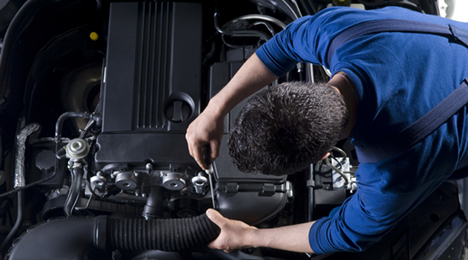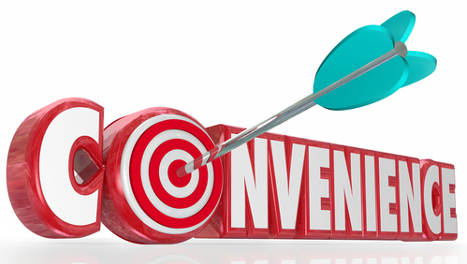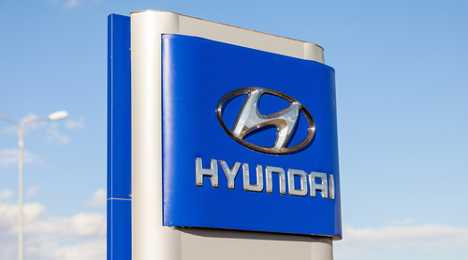Cars.com recently announced the results of an analysis it performed on nearly 1 million reviews submitted by customers on its site.
According to the company’s research, seven out of 10 car shoppers said that reviews of dealerships are either a “very” or “extremely” important part of their research during the vehicle-buying process. To further elaborate on this statistic, Cars.com delved further into the topic with a text-based analysis of its consumer-submitted reviews to see what kinds of commonalities it could discover.
“Online reviews are more than social proof; they’re equity for dealerships,” said Simon Tiffen, Cars.com’s senior manager, advertiser insights. “Now that reading and writing online reviews is normal behavior for consumers, we’re able to aggregate and analyze real-life experiences to make tangible improvements to the shopping process, not to mention find out some fun stuff along the way."
One of the first big findings of the research was when customers typically complete their reviews of dealers. Cars.com data showed than over half (52 percent) of all dealer reviews were completed between 10 a.m. EST and 4 p.m., with Tuesday, Wednesday and Thursday being the days of the week with the most completed. Seven percent of all reviews were made on Saturdays, and almost none were submitted between 3 a.m. and 5 a.m. EST.
“Since consumers are most likely to leave a review during midday, it makes sense for manufacturers and dealerships to capitalize on that behavior,” Tiffen said. “If you’re asking customers to submit a review, time your communication for when they’re most open to sharing, which often means during typical working hours.”
Although the average review on its site is 62 words, negative reviews (that did not recommend a dealership) were, on average, 142 percent longer than positive reviews. Although these negative reviews only make up 4 percent of all the reviews, they were 19 percent more likely to be submitted on a Saturday, Sunday or Monday, implying that the majority of bad experiences happened on a weekend trip to the dealership.
“When a consumer has a bad experience, they want their voice heard,” Tiffen said. “Businesses mess up sometimes, that’s a given. But now retailers have an opportunity to resolve individual issues as well as identify larger problems connected to dealership process through direct customer feedback.”
Cars.com recommends that dealerships pay close attention to make sure that their service quality doesn’t suffer when the business is at its busiest.
“Retailers need to pay extra attention during high-traffic hours to make sure their customer service doesn’t slip,” Tiffen said. “This includes monitoring online review and social media channels, where consumers are likely to vent after a negative experience.”
On that note of dealership response, the company’s data revealed that less than a third of all reviews on the Cars.com website are answered — which the company says can correlate with the dealerships average star rating on the site. The state with the highest rated dealerships, Delaware (with a score of 4.7 out of 5) also had the highest rate of response to reviews, at over 60 percent. To contrast, South Dakota, with the lowest average dealership rating of 3.9 out of 5, had an average response rate of less than 10 percent.
More insight from Cars.com can be found on its dealer-oriented website.
DealerPager.com has a new custom messaging platform available for dealerships, designed to send custom text notifications to vehicle service clients.
With mobile usage in auto sales growing at a rapid rate, texting is becoming a prime way to reach customers — especially those interacting with the service department.
“It’s as simple as asking a customer if it’s OK to send a text with progress updates or when maintenance is complete. If your service department repairs 100 vehicles a day, that’s up to 100 fewer times your service writers have to leave their desks. Searching for a customer can take 3-5 minutes, or more, so we’re talking about a significant amount of time,” said David Mizer, owner of DealerPager.com.
The company contends the messaging service is a great way to share useful information while customers’ vehicles are in the service department for regular maintenance or more in-depth work.
One reason a tool such as this could be particularly useful in the service department is because of the fast-paces nature of the business, with quick turnover and cars constantly coming and out of the service bays.
With service writers jobs getting busier and busier, especially in light of the influx of recalls, a quick text can be much easier and more convenient than a phone call.
Following news of the AAA Mid-Atlantic’s recent venture into the car-buying service sector of the auto business, Auto Remarketing decided to reach out to our home state's chapter, AAA Carolinas, to see how one of the organization’s founding members of the auto-buying service does business.
Greg Pence, the manager of the auto buying service for AAA Carolinas, explained how his system works, a system that has been available to his organization’s members in North Carolina and South Carolina since 1993.
“We are a full concierge service,” Pence said. “We eliminate the hassle for our members to go to a dealership and spend four to six hours there and talk to many, many people.”
How exactly does AAA Carolinas eliminate as much customer hassle as possible? According to Pence, all they need to know is what their member is looking for and they take care of the rest — even up to the point of a free delivery, for both used and new vehicles, to a member’s house or place of work, if they so choose.
“Our process, what we do at AAA for our members, is find out the vehicle that they’re looking for and searching to buy,” Pence said. “If we don’t have it in inventory, which we stock 40 to 60 pre-owned vehicles in our inventory, sometimes as much as 100, we will actually go out and find the vehicle for them, either at an auction or another dealership that we work with consecutively. Then we actually buy the car on their behalf, bring it here, it will go through our own inspection process and at that point we deliver the car to their home or office.”
The entire operation is run out of the AAA Carolinas corporate office in Charlotte, N.C., including all of their inventory and their staff, servicing all AAA members in N.C. and S.C. Although Pence says the majority of his customers are already members, non-members interested in the service will have to get a AAA membership before being eligible.
While that might sound like a pain point for some, the organization also takes the initial hassle out of that situation — by making that free, as well.
“The only way we can sell them a car is to make them a member of AAA, so basically that’s what we do,” Pence said. “We pay for the first year of membership if they’re not a AAA member.”
Pence says this policy has proved to be an excellent way to attract non-members toward becoming AAA members. Although he says they don’t track the percentage of members who have joined for the auto-buying service and stayed, he estimates that anywhere between 60-80 percent of his customers keep their memberships active.
The success behind the AAA car-buying service, just like many other areas of the automotive sales world, is due to positive relationships. Pence estimates that AAA Carolinas sells 120-130 cars a month, 20-30 of which, on average, are sold to North Carolina State Employees’ Credit Union members, one of the many credit unions that employ AAA’s service for their own members.
“We are operating for six or seven different credit unions now, we are their auto buying service,” Pence said. “One being State Employees’ Credit Union of NC, one of the largest in the country. We are their buying service — we do everything for them. They call the credit union and then they have a person based there at the credit union that calls us and gives us all the information and then we work with the member directly from that point.”
AAA Carolinas leverages its strong relationship with neighboring dealerships to work out great deals for its members, while the dealer benefits from the sheer number of vehicles it can move via one conduit.
“As far as the manufacturers and the new cars for sale it’s the relationship and the fact that we’re selling in volume, we’re not buying one car a month. We’re buying many cars a month from them so we’re able to get a better price based off of that,” he said “They go through a dealership and we have a fleet person that we deal with directly with a couple of the dealerships for manufacturers and then there’s some other sourcing that we’re able to use because we buy so many cars. But most of the time it is through a dealership – the car’s typically there or we pull it from the port.”
According to Pence, the majority of the used cars they sell are already on the AAA Carolinas lot. Its corporate office also serves as the hub of its auto sales, where Pence says, at any given time, they will have 40-60 vehicles in stock, which typically gives them 45 days’ worth of supply. It also doesn’t hurt that the organization typically serves customers with above-average means.
“We have four or five different banks and lending institutions that we use,” Pence said. “We take all the information down, relay it to the bank, the bank actually qualifies the customer at that point and does the financing, as well. A lot of people go to their own credit unions and banks or pay cash. The AAA demographics are pretty strong — we’ve got high Beacon scores for most of our members and a lot of them pay cash for the car.”
More information on AAA Carolinas’ car-buying service can be found on its website.
After launching a revamped dealer certification program in late January, TrueCar announced this week its dealer network has surpassed the 10,000 mark.
This number includes 8,700 U.S. franchised dealers and 1,300 independent dealerships specializing in used vehicles.
Company management explained this latest benchmark pushes TrueCar toward its goal of including a third of U.S. dealers in its network.
“We’ve reached a threshold of dealers that provides strong brand and geographic coverage to ensure there are convenient, competitively priced dealers close to consumers,” said Scott Painter, TrueCar’s chief executive officer and founder. “Our business expands as we grow our franchise network and enlarging our non-franchise dealers gives consumers more options on the used-car side.”
Bob McLean is general manager of Larry H. Miller Lexus in Spokane, Wash., a newly added TrueCar Certified Dealership that helped the company reach the 10,000-dealership mark.
“With TrueCar it’s a very easy process for the customer,” said McLean. “TrueCar also allows us to connect with customers we wouldn’t have had access to without the service.”
The company will be working to build its network even further this year, and is also working on enhancements to its mobile app.
“Forward-looking dealers are acknowledging the evolution of auto retailing and recognizing the strength of TrueCar's brand and loyal user base,” said Mike Timmons, TrueCar’s senior vice president of dealer development. “We wish to thank our dealer partners for their support and we look forward to helping them grow their business.”
Auto Remarketing recently took a look at trends revealed in the recent MTV study, “Millennials Have Drive,” that implies millennials might be more interested in the cars on your lot than you might think.
The first portion of the MTV study debunked myths left and right, showing millennials might be far more interested in vehicle purchases than the industry initially thought.
Next, the study touched on how dealers and automakers can target these younger buyers and keep them coming through the dealership doors.
MTV analysts encouraged the auto industry to “tap into their (Millennials') functional and emotional needs,”starting with how these younger folks engage with cars.
The study asserts that millennials actually engage with cars in a completely different fashion than earlier generations.
For example, while baby boomers may have considered the key to “success” to be independence, according to the study, millennials have added “individuality” to that list.
How does that apply to their auto shopping behavior?
“A car plays an integral role as young people craft the persona they want to show the world and can help them get where they want to be literally and figuratively,” the study reported. “Millennials are striving to reach the same milestones as previous generations, but faster and in their own way.”
And this may play a role in vehicle purchase time, as well. According to recent research from Cox Automotive, car shoppers want to be in and out of the dealership in 90 minutes or less.
And according to the MTV study, 73 percent of millennials get very annoyed when things don’t happen quickly, versus 49 percent of baby boomers and 65 percent of generation X.
Next up, MTV pointed out that millennials use their vehicles to “make their presence known in the world.”
Though reliability still plays a role in millennials choice of vehicle, 77 percent feel it’s important that their next car “makes them happy” and reflect who they are and their personality.
According to the study, 63 percent of millennials say it’s important their car helps them become who they want to be versus 50 percent of baby boomers and 24 percent of generation X.
For example, a young person who wants to illustrate their love for the environment through their next vehicle purchase may choose a hybrid or alternative-fuel vehicle to prove this point.
In fact, General Motors is already tapping into this well across all generations with its latest environmental initiative.
Lastly, the MTV study pointed out that perhaps one of the most important points for the auto industry to consider when researching millennial trends is the fact that most are not loyal to a particular brand.
In the words of MTV: “Millennials are up for grabs — there is no one brand ahead of another when it comes to getting millennials’ attention.”
Consequently, automakers are on a level playing field when it comes to this generation.
MTV suggested transparency throughout the buying process as one way OEMs can reach generation Y. Fair pricing and faster process are also high on the list.
Millennials also want to be able to customize their vehicle, or make it their own, according to the study.
“Millennials want flexibility to create customized interiors that best represent them. They want to play around with different looks via online showrooms where they can experiment (minus the sales people), see car companies seamlessly meld their phones into their cars, and continue to have a relationship with the car dealer where oil changes could earn points toward new floor mats or fog lights,” the MTV study concluded.
At last week’s NADA Convention & Expo, Cars.com revealed a new tool to help franchised dealerships make their service departments stand out from the pack.
The site has launched RepairPal Certified, which was developed in partnership with RepairPal.
The certification badge is designed to verify trusted service departments for consumers shopping around, and shows consumers certified dealerships’ service departments have strong customer satisfaction scores as well as fair prices. The tool was rolled out in select markets this past week and will be available nationwide this March.
“We’re excited to launch RepairPal Certified for franchise dealers and help them take back their service business,” said Alex Vetter, chief executive officer of Cars.com. “We’ve always dedicated ourselves to building a trusted platform for car shoppers, and consumers have come to rely on us at all stages of the buying process.
“Now our goal is to transform the service and repair category by providing much-needed resources for car owner seeking help and advice when it comes to maintaining their vehicles, and or dealerships looking to boost their service business and regain their market share from national service chains.”
Cars.com pointed out that since more than 86 percent of cars on the road today are past warranty, dealers may be losing out on service opportunities with limited options to market this branch of their dealership.
RepairPal is designed to address this concern. To earn and maintain RepairPal certification, dealers must complete an assessment every 90 days covering four key areas, the company explained: technical assessment, minimum warranty, customer satisfaction and price guarantee.
A RepairPal certified dealer must also have OEM-certified technicians, at least a 12-month/12,000-mile warranty, a minimum number of Cars.com Service Reviews with an overall 4-star rating in sales or service, and pricing that falls within the RepairPal Estimator.
When dealer is certified, it will be featured on Cars.com and RepairPal.com.
Cars.com encourages certified dealers to use their certified status offline, as well, in their own marketing materials.
General Motors is ramping up its environmental sustainability efforts, and its dealers are joining in the movement, as well.
The automaker recently launched its “Green Dealer Recognition” program, and certain Chevrolet, Buick, GMC and Cadillac dealers are using these environmental credentials to attract customers who value “green” businesses.
The participating dealers have made strides in areas such as energy reduction, renewable energy use, water conservation efforts, recycling, on-site nature habitats and community outreach.
“Within just 24 hours of the program’s launch, 66 dealerships signed up and began evaluating their performance against our criteria,” said Kurt McNeil, GM vice president of U.S. sales and service. “We think customers should know all the behind-the-scenes efforts our dealerships make to leave a smaller footprint on their communities.”
GM launched the program to encourage its dealers to “continue these voluntary efforts and build a network for sharing best practices to help others begin or advance their sustainability journeys,” management shared.
So far, 180 dealers have requested to complete the performance assessment.
How does it work?
When submissions are received, GM’s green dealer support team evaluated them against specific criteria.
And a dealer’s continued efforts in environmental sustainability will lead to ongoing annual recognition, the company explained.
To date, eight dealers have achieved green dealer recognition for superior sustainability performance.
The initiative was shaped by dealers who took part in a pilot program. For example, George Nunnally Chevrolet in Bentonville, Ark., shared with his fellow dealers cost-effective, green strategies, such as installing LED lighting or gathering rainwater from the rooftop.
“Although financial savings is what started our environmental upgrades, we’ve found we have like-minded people in our community that really appreciate the effort we made,” said Gan Nunnally, general manager. “We’re seeing that through our service lane and our sales. These are people who have not previously driven a Chevrolet.”
GM dealers cited customers as one of the top reasons to upgrade your facility to reflect a greener approach. As many car buyers are looking for more fuel-efficient vehicles, some are also searching to buy from environmentally responsible companies.
Operational efficiency, employee motivation and community were the other top three reasons for environmental upgrades and outreach activities cites by GM dealers in regards to the new program.
“We were impressed by how willing dealers were to share their accomplishments with their peers,” said McNeil. “They wanted to be listed as a resource for other dealers in evaluating investment and return on various initiatives. When more people begin to operate in a sustainable way, everybody wins.”
With the NADA Convention & Expo is in full swing this week, AutoTrader.com released new statistics that show car shoppers are looking for a convenient — and short — car-buying experience.
Once customers make it onto the lots, a recent white paper from Cox Automotive — parent company to AutoTrader — shows car buyer satisfaction with the dealership experience drops after an hour-and-a-half. When car shoppers choose a dealership to visit, they are expecting to be in and out fast.
According to the AutoTrader Dealer Sourcing Studies which were published in the recent white paper “It’s About Time: Streamlining In-Store Processes to Improve the Customer Experience,” customer satisfaction is at its highest within the first 90 minutes on the day of purchase.
The white paper took an in-depth look at four dealerships to study actual cycle time across key processes from post-vehicle selection to pre-delivery of a vehicle, the company explained.
And once dealers go beyond the 1.5 hour mark, customer satisfaction begins to drop. And if you get beyond 2.5 hours for a deal, satisfaction drops below buyers’ average satisfaction score.
The white paper found that the sales process at the four dealerships studied, on average, took nearly 53 minutes, which is over half of the total cycle time desired of 90 minutes. Once again, the vehicle appraisal process took an average of 43 minute, almost half of the desired cycle time.
Lastly, the F&I process tacked another 61 minutes onto the process.
“While some dealers are making strides in correcting the issues that contribute to purchase-day delays, there is still a lot of work that needs to be done — on our side as a partner and technology provider and in-store at dealerships,” said Rowe. “We are committed to working closely with our dealer customers to bring more transparency and efficiencies into the car buying process that will ultimately help them exceed buyers’ expectations.”
Those shopping for a Hyundai in Houston this weekend may be surprised by what they find at Humble Hyundai and North Freeway Hyundai. Edmunds.com’s car buying experts will be at the two dealerships Friday and Saturday to “take over” the showrooms and offer an “unprecedented shopping experience.”
The two dealerships will feature the Edmunds.com Price Promise service, allowing every new car in stock to be available at “guaranteed upfront prices,” which, according to Edmunds.com, will be set at or below Edmunds’ True Market Value prices. The experts will be on site to answer shoppers’ questions and provide advisement.
“We put extra emphasis on customer service and, by inviting Edmunds.com into our store, we hope to give our customers the best car buying experience they’ve ever had,” said Paul Peebles, North Freeway Hyundai’s owner and president.
“With the trust and expertise of Edmunds.com guiding them through the process, we expect to get more customers on their way to celebrating the holiday season in a brand new Hyundai,” said Karl Krell, Humble Hyundai’s general manager.
According to the company, its Price Promise program was created to give shoppers a “convenient and reliable way to know exactly what price they’ll pay at the dealership,” solving an issue that, according to a company survey, revealed that the biggest need left unmet for car shoppers was getting an actual price for a car.
“This weekend’s ‘takeover’ is just one of many initiatives we have underway to help car shoppers feel good about their new car purchase,” said Seth Berkowitz, president of Edmunds.com. “We’re excited to partner with forward-thinking dealerships like Humble Hyundai and North Freeway Hyundai who share our goals to continue building a better car shopping experience.”
The event will last between 9 a.m. (CT) and 9 p.m. on both Friday and Saturday.
This week, Asbury Automotive Group acquired Sandy Springs Ford, a franchised dealership that generates approximately $110 million in revenues annually.
Asbury rebranded the dealership as Nalley Ford Sandy Springs, bringing the number of group stores in Georgia to 16.
The newly acquired store is located at 7555 Roswell Rd in Sandy Springs, a northern suburb of Atlanta. For 30 years, company officials highlighted, this Ford store has served customers from all over Georgia.
In 2011, the Ford store won the President's Award for Superior Customer Service and Sales Excellence which is the highest honor from Ford.
Asbury president and chief executive officer Craig Monaghan said the company is dedicated to continuing this tradition of excellence.
"The acquisition of this Ford store provides a great addition and diversity to our suite of stores in Georgia,” Monaghan said. “We’re looking forward to carrying on the superior quality of service and sales the customers of Sandy Spring Ford have come to expect.
“We welcome these fine employees to the Asbury family and are excited about our future in Sandy Springs,” he went on to say.











